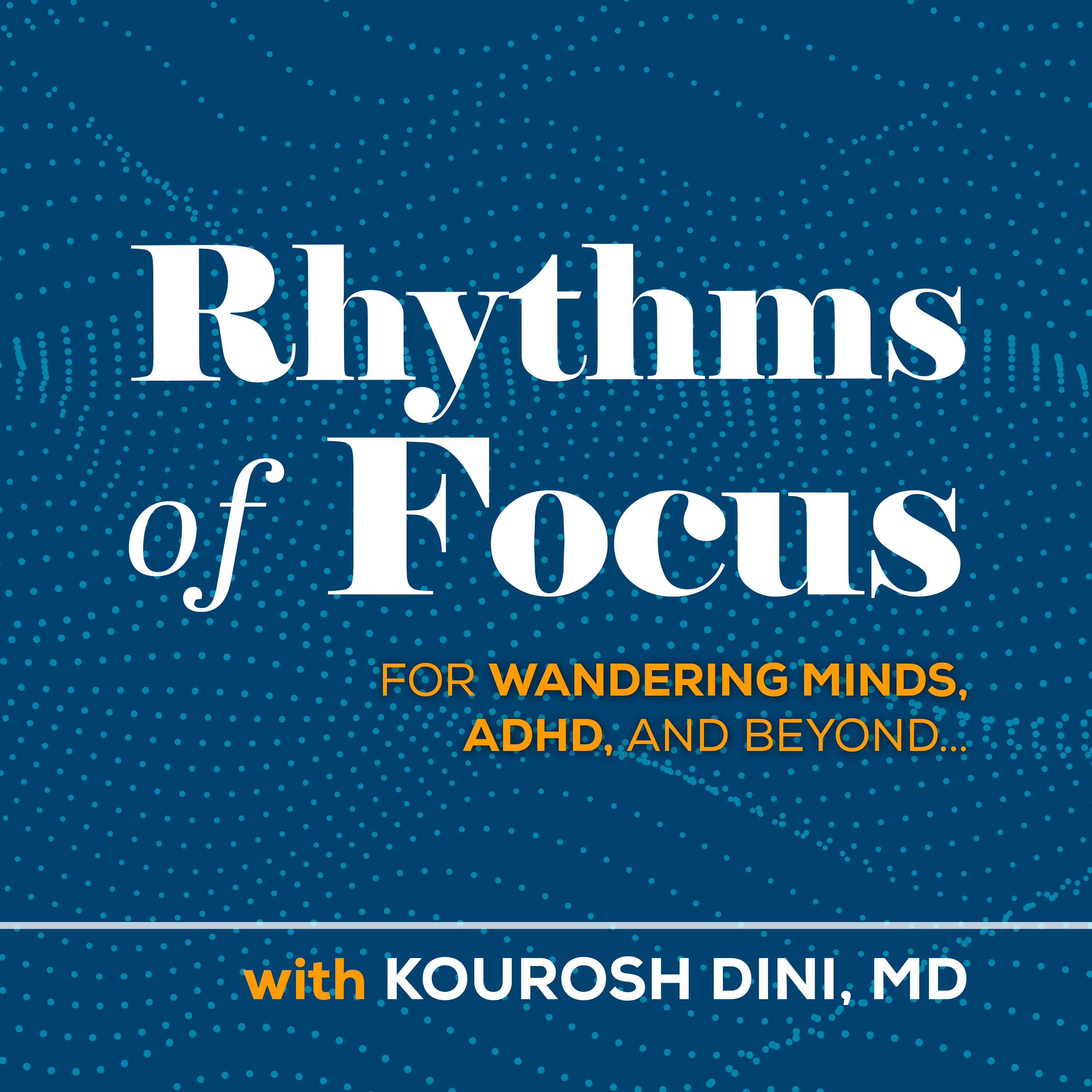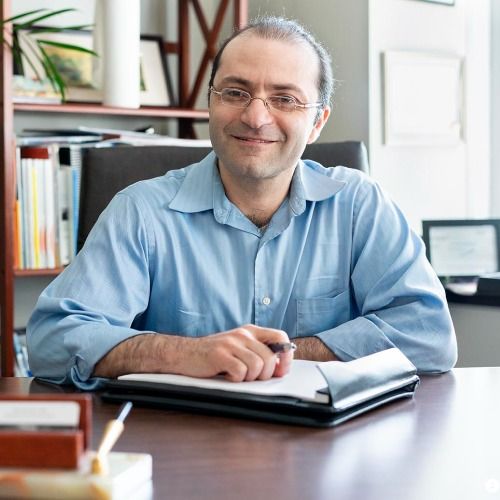Episode 16
16. The Power of Doing Nothing
The Power of Doing Nothing
Could there be power to “doing nothing”?
In this episode of Rhythms of Focus, we untangle the unexpected value of “the visit”—the art of showing up to your work, play, or creative project without any pressure to act. It’s a practice especially vital for adults with ADHD and wandering minds, offering a way to foster agency and mindfulness beyond the rigid mold of traditional productivity.
You’ll learn:
- Why allowing yourself to simply “be” with a task—without expectation—can spark clarity, motivation, and self-understanding.
- How daily visits help you navigate fear, procrastination, and the deeper emotional storms that influence your focus.
- Why embracing thoughtful pauses can nudge your creativity and reveal new paths, even in moments of resistance.
Key Takeaways:
- A “visit” to your work strengthens agency and self-compassion, helping you move at your own rhythm.
- Facing the discomfort of pausing with your project is emotional work—often more powerful than sheer action.
- True progress begins in the quiet moments between doing—where insight and motivation have space to emerge.
This episode features an original piano composition, “Where Did the Table Go?”,
Subscribe for mindful strategies and visit rhythmsoffocus.com to explore more rhythms for your wandering mind.
Keywords
#ADHD #WanderingMinds #MindfulProductivity #EmotionalWork #Agency #DailyVisit #FocusStrategies #CreativePauses #RhythmsOfFocus #PianoMeditation
Transcript
Introduction
What's the point of doing nothing?
I've recommended this approach that we can make to our work where we can sit with it and even not do a thing. I call this a visit, and so when I make this recommendation, I regularly hear a quite understandable question.
What's the point of doing nothing?
Well, as it turns out quite a lot, and I can get into those reasons, but simply saying that and going through those reasons often isn't enough to make it appealing. In fact, this question, what's the point, can often be a way of avoiding the attempt. It's protecting us from something.
It can even act as a proxy for several quite understandable reasons for avoiding what could be a powerful tool in your life.
A Visit Reviewed
A visit, even more so, a daily visit to some work that you have in front of you, some play that you wanna get into can be an absolute force to be reckoned with -this wonderful unit of work that can guide projects, habits, even developing relationships into fruition at a pace that works for you.
I've described visits in some detail in episode four, but in short, they're about showing up to a thing, whatever that thing is, desired, dreaded, and then fully being there without any obligation to doing any of it.
We could sit there staring out at the garden. Maybe we nudge it here or there. Maybe we get into a flow, or maybe we walk away without having touched it at all.
The important matter is that we're somehow fully there for at least a moment, maybe for a single deep breath.
Allowing ourselves to do nothing is not only important, it's absolutely vital. It supports that sense of agency. It's like the difference between being assigned a book to read in school or choosing to read that same book yourself.
The Complexity of a Visit
While a visit can sound simple, it is by no means simple.
In fact, it can not only be difficult, it can be dangerous and scary. In this question, "what's the point of doing nothing?" There's a clue in fear. Somehow we'd waste our time. The fear of wasting time is one of wasting life- this existentially awful feeling.
What would we gain in taking this chance of being and not necessarily doing?
For example, let's say I'm struggling with a school report. If I simply avoid it, I might fail the class. If I wait for urgency to take over with an approaching deadline, I could exhaust myself, lose out on more fun things, get thrown off by other deadlines, illness among other possibilities. Or if I shove myself through, I might not be able to recognize more creative ways to engage or even learn from it, also exhausting myself.
But if I can simply be for a few moments, maybe giving myself time well ahead of a deadline, if possible, I can sense the fears, maybe a sense of, I'm incapable, I'm lost. I don't know what I'm doing. But then I can start thinking, okay, well how would I test that? Maybe I can try this, try that. I might find that, oh, I, I do know how to do some things.
But on the other hand, I might also find that my heart is just not in this, and my heart's actually in another major of work entirely that I'd like to change majors, but then that butts up against another fear of having to talk to my parents, for example, this deeper fear, but also a place for stronger courage, a more important fight than the paper in front of me.
In avoiding the pause, in avoiding being with the work, either forced ourselves through, moved on elsewhere, we miss that sense of what does this mean to me? Every pause gives our mind time to have feelings and thoughts themselves alive only in time given the room to settle. They strengthen the grounds of meaningful decision.
Rather than wait for motivation, we begin creating the conditions for motivation to form.
Is it Peaceful?
When I say do nothing, when I say be there, maybe another idea comes to mind too, something like meditation. You know, it seems like this peaceful thing, these peaceful images of just being.
But it could also be terrifying. And by the by, I think real meditation can also be terrifying. Many of us have a number of emotional tensions and storms.
I don't write the report, not just because "I don't feel like it," but possibly for fear of what it might reveal about my abilities and lack thereof. Therefore being unlikeable, unsuccessful, unable to find relationships, unable to set limits, unworthy, and more.
Doing nothing puts us in front of those horrors.
Doing something, taking action- hyperactive, impulsive, regardless of the direction, is often this attempt to escape the dread.
Being lets us engage in the hard work, which at its core is emotional work.
Daily Visits Imbue Care
When we visit something daily, we can always step away. We can always titrate. We can let our unconscious mind percolate between visits. Having done the work of exposing ourselves to those emotions, maybe it gets harder, maybe it gets easier. Maybe we shift gears to only envisioning the work.
So consider if a visit is avoided, not out of hand, but from not hearing some important part of you that has a concern. When you say, "what's the point?" It might be that you're afraid of a waste of time or a worry about what it might reveal, but know that it then, if you can get there, if you can be with the work and nothing comes to mind, that's okay.
Your time was not wasted. Things often come up in the time between visits as the mind kind of bubbles. One thing you can be sure of though is that if you're not with the work at all, some point in time, neither it nor you would go forward.
A Challenge
There is a challenge to this. Hard work is emotional work, and I know I'm supposed to say something like, "Hey, believe in yourself. It'll work out and all that." I don't know. You might even be impossible. Courage isn't something that we automatically reward with a prize. By definition, we might meet catastrophe. It may not work. There might be things that are scary. But we also might find things that are meaningful, beautiful, and a life otherwise missed.
So the takeaway here, if you haven't given a visit, a try, placing something in front of you, being with it. What's holding you back?
"Where did the table go?"
A piece of music is a place of rest. It's somewhere for the mind to drift through for a few minutes. It can distract, it can confound, but in the end, I often find music to be refreshing in the inevitable pauses of a visit. As I hear music sitting in the background, it can catch my wandering attention and gently help me return it to whatever it was wherever I was.
Losing My attention is a regular process as I work or write. It's part of the process. It's part of being there in that visit. I might be in the middle of something that seems to be quite moving, and yet the more moving it is, sometimes the more my mind can wander off without my realizing it. To that end, I've titled this piece with an absurd notion of losing something in plain sight.
It's called "Where did the Table Go?" I hope you enjoy it.
Mentioned in this episode:
Rhythms of Focus - CTA - Subscribe, Rate, and Review


